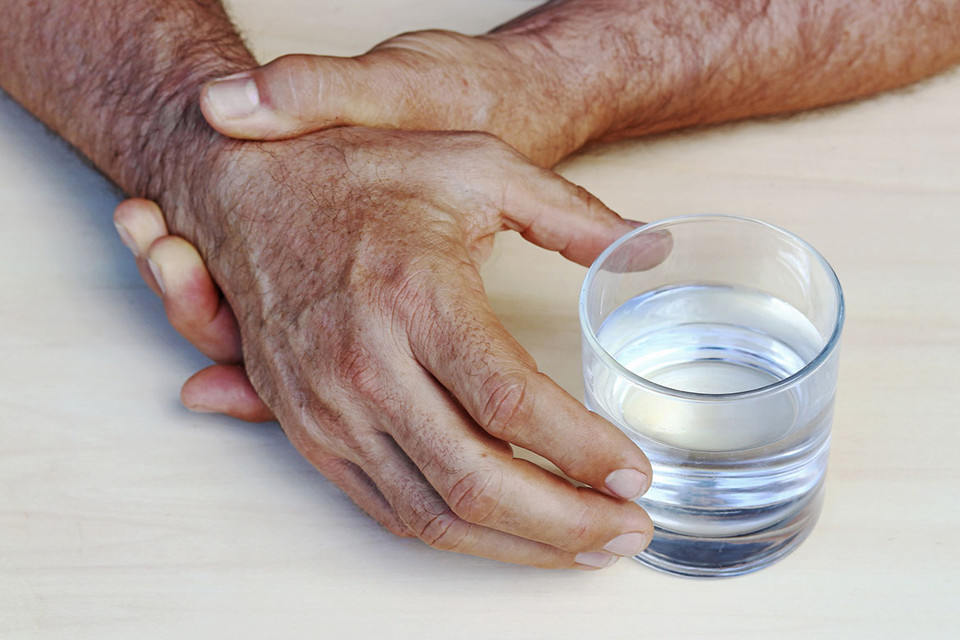Jan 23rd 2024
Early Signs of Parkinson’s Disease
Parkinson's disease (PD) is a progressive neurological disease in which brain cells that produce the neurotransmitter dopamine gradually die off. The result is an increasing loss of control of motor functions and other non-motor symptoms.
Although it doesn't usually show up until after the age of 60, PD can afflict younger people, too. A case in point is the popular actor Michael J. Fox, who noticed the first signs of PD when he was only 30 years old.
What Is Parkinson's Disease?
PD is a progressive neurological condition often starting with tremors. With time, the body can experience a combination of uncontrollable shaking, stiffness and slower movement and difficulty with balance and coordination. Speech, meanwhile, may start to sound slurred or softer than usual. These physical developments may be accompanied by changes in mood, memory, sleep and energy.
These symptoms occur due to decreased amounts of neurons transmitting dopamine to your brain and tend to first be noticed after the age of 60, typically on one side of the body. Decreasing nerve cells in the basal ganglia are usually associated with more prominent symptoms. Medications like levodopa can help with managing PD. Currently, PD has no known source, although genetic and environmental factors may play a role.
As the condition progresses, individuals develop:
- Tremors in the extremities, hands and/or fingers.
- Slower movements and shorter walking steps.
- Stiff muscles that limit range of motion.
- A stooped posture.
- Fewer or a loss of automatic movements, like smiling and blinking.
- Balance issues.
- Slower, softer or slurred speech.
- Writing difficulties, potentially resulting in smaller, more restricted penmanship.
Identifying Early Signs of Parkinson's Disease
Diagnosing PD is done on the basis of symptoms and excluding other diseases. But by the time the classic motor symptoms of PD begin to manifest, 60-80% of your 400,000 or so dopamine-producing brain cells have already died. Wouldn't it be helpful to know that they were dying off years before a large percent of them were already gone?
While research scientists are working to find predictive biomarkers, there are two often-overlooked symptoms that may indicate very early PD.
Chronic Constipation
Dr. James Parkinson, for whom PD is named, was the first to observe that gastrointestinal issues preceded the disease. Chronic constipation tends to appear some 10 years before motor symptoms, leading some scientists to think that intestinal dysbiosis (having too many bad bugs in your intestines) may be a cause of the disease.
There are many reasons someone can suffer from chronic constipation, and most people with this issue don't have early PD. But if you've tried every remedy in the book for a sluggish bowel without success, it could be that you're beginning to become deficient in dopamine, which is necessary for proper nerve stimulation of the gastrointestinal tract.
REM Sleep Disorder
The other early sign is REM (rapid eye movement) sleep disorder. This disorder involves physically acting out and vocalizing dreams. People may talk, shout, scream or laugh. They may move about, engage in activities associated with waking, and may even punch their bed partners or yell at them, all while being fast asleep! About 50% of those with this disorder are expected to develop PD or dementia in the next ten years.
What Should You Do if You Suspect You May Have Early PD?
Allopathic medicine has little to offer early on, but a functional medicine doctor can test you for dysfunctions that underlie neurodegeneration. These include nutritional deficiencies, oxidative and inflammatory stress, toxic exposures, your detoxification system and intestinal dysbiosis. This can help you formulate a lifestyle and supplement program that support your nerves and brain. You can engage in strenuous aerobic exercise, which many studies have shown to be neuroprotective. And finally, you can avoid neurotoxins where possible, by consuming fresh, organic food and skipping most processed foods.
References:
- Hill AE. What is our understanding of the influence of gut microbiota on the pathophysiology of Parkinson’s disease? Frontiers in Neurology . Published online August 26, 2021.
- Postuma RB. Clinical prediction of Parkinson's disease: planning for the age of neuroprotection. Journal of Neurology, Neurosurgery & Psychiatry. September 2010;81(9):1008-1013.
 Fuel your life with the purest vitamins
Fuel your life with the purest vitamins
